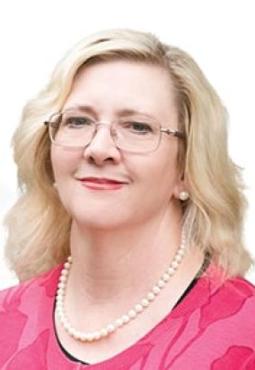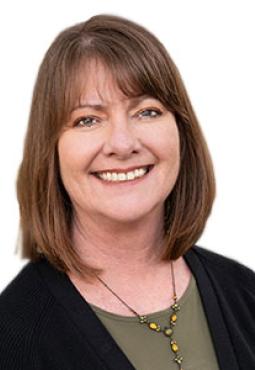A recent study emphasizes the importance of incorporating spirituality into patient care, especially for seriously ill patients.
Betty Ferrell, Ph.D., M.S.N., isn’t surprised by the findings of a new Harvard study urging health care professionals to incorporate spirituality into their patient care.
“We’ve been doing this at City of Hope for 30 years,” she said.
By “this” she means City of Hope’s commitment to whole person, patient-centered care, which goes beyond treating disease and recognizes that a person’s spiritual well-being can be as important as physical, social and psychological health.

Ferrell, director and professor in the Division of Nursing Research and Education in the Department of Population Sciences, has been studying this since arriving at City of Hope in 1989. Early on, she says her research produced an “aha!” moment, showing that patients’ quality of life is profoundly affected by their spirituality, and that more attention needed to be paid to it.
The new study, “Spirituality in Serious Illness and Health,” published in the Journal of the American Medical Association in July 2022, which Ferrell co-authored, is likely the largest and most rigorous examination of the subject.
The ambitious project sifted through more than 15,000 articles published between January 2000 and April 2022. The articles ranged from small and medium surveys to clinical trials and just about everything in between.
Extracting data and drawing conclusions from such a huge pool of material is a daunting task, but researchers aided by a religiously diverse, 27-member panel of experts in spirituality, health care, public health and medicine got it done.
Perhaps the most significant finding was that, pretty much across the board, spirituality matters to most patients, whether during serious illness or to help maintain overall health. This was true regardless of religious background — pious devotees, casual members of faith groups and unaffiliated “no religion” patients all felt the same way.
“Some of our patients are religious,” said Ferrell. “All of them are spiritual.”
Ferrell and her research colleagues define spirituality in expansive terms, to include connection to nature, family and community. “It is a broad brush,” said Ferrell. “Anything that gives meaning and purpose to one’s life. It can be a higher power. Or it can be whatever answers questions like, ‘How will I be remembered?’ ‘Was I a good person?’ When we interviewed patients about their spirituality, 80 to 90% answered in terms of family.”
People care about spirituality because they believe it helps them. The study found that people with active spiritual lives tend to be healthier, live longer, have fewer problems with addiction and are less prone to suicide. Among the seriously ill, patients frequently call upon their spirituality to help guide them in medical decisions and generally experience better end-of-life outcomes.
The Power of Spiritual Care
Researchers like Ferrell aren’t the only ones who believe in the power of spiritual care. Chaplains on the ground — the primary dispensers of such care — see evidence of it every day.

“I help patients come to a certain level of peace,” explained Jacqueline Trinkaus, M.Div., BCC, one of four full-time chaplains at City of Hope. Most of her patients are in the final stages of their disease. “Being able to be with a patient and help them navigate and reconcile themselves to what’s happening is very important and helpful.” Such care, she added, can often make the difference between a frightened patient, still in denial, dying alone and isolated in the hospital, or surrounded by loved ones at home or in hospice.
Given the clear importance of spiritual care and the strong desire of patients to have it available, the study’s other major finding is sobering. It found that, too often, spiritual needs go unaddressed and spiritual care is infrequently provided in a hospital setting. This, too, has been witnessed by people on the front lines.
“Many hospitals still don’t have a full-time chaplain,” Ferrell lamented. “And many places never pause to even ask their patients about spirituality.”
Before joining City of Hope in 2020, Trinkaus served at facilities that offered only part-time chaplain services. “It’s not a priority for them. It’s more of an afterthought,” she said. She much prefers her current situation where she is part of a larger team, and spiritual care is integrated into hospital practices, such as going on daily rounds with the doctors.
Better Staff Education Needed
When it comes to recommendations, the study urged greater education of medical staff in the benefits of spiritual care. This can be a bit of a tough sell at some institutions, until they understand that no one is calling on doctors to become rabbis or nurses to pray with patients.
“We want surgeons to do surgery,” insisted Ferrell. “But we also want them to be respectful of a patient’s spiritual needs and practices.”
It also requires a certain sensitivity on the part of doctors who should know when to reach out to a chaplain for help. Some already do.
“Many doctors email me and ask me to see a particular patient,” said Trinkaus, adding that it’s very helpful when doctors, properly educated in spiritual care, recognize that a patient’s physical pain may have a spiritual component that needs to be addressed. “Some patients [in their final days] are having a conversation with God, wrestling with Him,” she said.
Respect for spirituality should begin the moment a patient enters the hospital, the study suggests. In addition to the standard questionnaires detailing a patient’s medical history, inquiries should be made about spiritual history as well. This need not be overly invasive or off-putting, even for patients who prefer to keep details of their spiritual lives to themselves. It could be as simple as asking, “Are spirituality or faith important to you in talking about your health or illness? Do you have or would you like to have someone to talk to about spiritual or faith matters?”
In other words, spiritual care needs to be there, embedded in the institution, but let patients access it on their own terms, in their own time and make sure that spiritual care providers are always part of the team.
“People are spiritual beings,” said Ferrell. “If we believe in whole person care, we should also be attuned to their spiritual needs and show respect to all.”
The Department of Supportive Care Medicine at City of Hope was the first in the United States to fully integrate across supportive care specialties and into the patient’s clinical care and is one of the largest programs of its kind today. The program provides cancer patients with comprehensive physical, psychological, social and practical support services, including care navigation; survivorship programs; specialists in cancer and aging; Child Life specialists; psychological and spiritual counseling; pain management; integrative medicine such as yoga, massage and meditation; and more — all with a focus on maximizing patient and family strengths, quality of life and the ability to best engage in their treatment journey and beyond. Thanks to a gift from the Biller Family Foundation, City of Hope is working to expand this offering across its cancer care system and to advocate for establishing supportive care as a standard best practice for cancer care in the United States.
